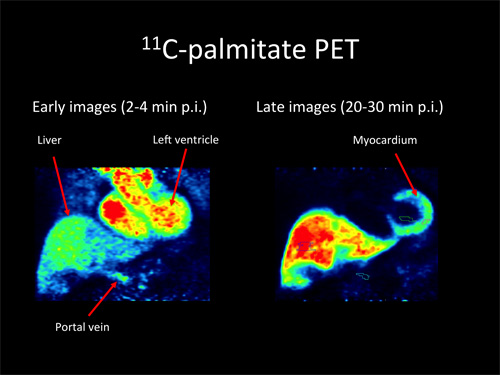Ketone bodies – why is fasting such a good thing?
Lars Christian Gormsen, march 2016
Long term fasting has recently gained much interest and an explosion of diet regimens such as the 5:2 diet has become increasingly popular. There is good evidence to suggest that minimal intake of calories for at least 24 hours is associated with better insulin sensitivity, lipid oxidation and possibly even long term survival. The mechanism behind these effects is less clear. We hypothesise that ketone bodies, which are produced in large quantities by the liver during fasting, serve as an alternative fuel for both the heart and the brain, and that ketone bodies per se increase cardiac efficiency.
To explore this, we use a ketone body solution designed to mimick conditions as seen after 36 hours of fasting. During hyperketonemia, cardiac substrate utilization, perfusion and efficiency are measured using 11C-labelled palmitate (fatty acid metabolism), 18F-FDG (glucose metabolism) and 15O-H2O (cardiac perfusion) PET. If cardiac substrate utilization is indeed altered by ketone bodies, we plan to extend the studies to encompass at least some of the most popular diet regimens.
